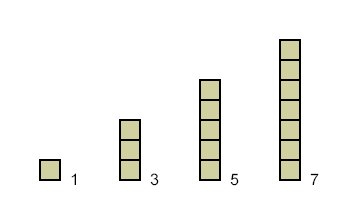111 Followers!
 Given that
a
1
,
a
2
,
a
3
,
…
,
a
1
1
1
follow an arithmetic progression. What will be their arithmetic mean?
Given that
a
1
,
a
2
,
a
3
,
…
,
a
1
1
1
follow an arithmetic progression. What will be their arithmetic mean?
Image Credit: Wikimedia Progression
This section requires Javascript.
You are seeing this because something didn't load right. We suggest you, (a) try
refreshing the page, (b) enabling javascript if it is disabled on your browser and,
finally, (c)
loading the
non-javascript version of this page
. We're sorry about the hassle.
2 solutions
CORRECT !
Log in to reply
Log in to reply
But u got 600 followers man !!!!!! Ur awesome
Log in to reply
@Vaibhav Prasad
–
 alt text
alt text
Log in to reply
@Harsh Shrivastava – allright enough
Log in to reply
Find the mean of the series by, S/111=n/2[2a+(n-1)]/111. Find the term which is equal to the mean by: mean=a+(n-1)d

Let common difference be x . We re-write the series as a 1 , a 1 + x , a 1 + 2 x , a 1 + 3 x , . . . . . . . . . , a 1 + 1 1 0 x .
Now adding them, we get 1 1 1 a 1 + 6 1 0 5 x .
Dividing them by 1 1 1 , we get a 1 + 5 5 x , which is their arithmetic mean.
′ a i ′ th term is given by a i = a 1 + ( i − 1 ) x
Hence by comparing , we get our answer as a 5 6